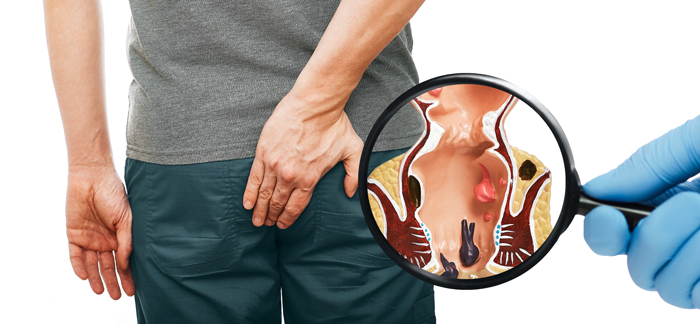Piles Treatment in Karol Bagh, Delhi
Hemorrhoids, also known as piles, are bulging veins in the lower rectum that resemble varicose veins. Hemorrhoids can develop inside the rectum or beneath the skin surrounding the lower back.
To know more, consult a general surgery doctor near you or visit a general surgery hospital near you.
What are the different types of hemorrhoids?
Internal hemorrhoids are those that occur within the rectum. They are harmless, but they bleed.
Prolapsed hemorrhoids are a more severe and painful type of internal hemorrhoids. These veins push through the anus and protrude from the body, especially after using the restroom. The anal sphincter (muscle ring) can sometimes strangle veins that are chronically protruding.
External hemorrhoids on the outside are tiny hemorrhoids under the skin surrounding the anus. They have the texture of firm lumps.

What are the symptoms of hemorrhoids?
The most prominent symptom is bleeding. The vast majority of people who have internal hemorrhoids spot a smear of bright crimson blood on the tissue or bloody streaks in the excrement. Consult a general surgery doctor near you as bleeding from the stomach can be caused by a variety of illnesses including colon cancer.
What causes hemorrhoids?
- As a result of constipation
- Due to the extra weight and strain on the intestines during pregnancy
- Due to genetic elements
- Due to a job that involves strenuous lifting
When do you need to see a doctor?
If you're experiencing bleeding with solid discharges or if your hemorrhoids aren't improving after seven days of home treatment, you must go to your primary care physician.
If you experience a lot of rectal bleeding, seek emergency attention.
Request an appointment at Apollo Spectra Hospitals, Karol Bagh, New Delhi.
Call 1860 500 2244 to book an appointment.
What are the risk factors?
The risk of hemorrhoids increases as you become older. This is due to the fact that the tissues supporting veins in your rectum and hips might weaken and expand. When you're pregnant, this might also happen because the child's weight puts pressure on the belly.
What are the possible complications?
Hemorrhoids can pose a variety of complications, including:
- Rarely, chronic blood loss from hemorrhoids can lead to sickness, and you require more solid red platelets to transport oxygen to your cells.
- If the blood supply to an internal hemorrhoid is cut off, the hemorrhoid may become "strangulated", which can cause excruciating pain.
- A coagulation can sometimes result in a hemorrhoid (thrombosed hemorrhoid).
What are the treatment options for hemorrhoids?
Hemorrhoids can be treated in the following ways:
- A little elastic band is wrapped around the foundation of the hemorrhoid to cut off blood flow to the vein.
- Electrocoagulation: An electric current is used to halt the flow of blood to a hemorrhoid.
- Infrared coagulation: A hemorrhoid is exposed to some form of heat, causing it to coagulate.
- Sclerotherapy: It destroys hemorrhoid tissue by injecting a substance into the bulging vein.
Surgery options:
- Hemorrhoidectomy: This type of surgery removes large outer hemorrhoids as well as prolapsed inner hemorrhoids.
- Stapling for hemorrhoids: A stapling device is used to remove an internal hemorrhoid. Alternatively, it can draw a prolapsed inward hemorrhoid back into the back and keep it there.
Request an appointment at Apollo Spectra Hospitals, Karol Bagh, New Delhi.
Call 1860 500 2244 to book an appointment.
Conclusion
Hemorrhoids are varicose veins in the rectum, often known as piles. Both prevention and therapy need a shift in your dietary habits to include more natural products, veggies, oats and water.
Hemorrhoids are quite common, with over half of the population suffering symptoms by the age of 50, and 75 percent of the population experiencing symptoms at some point in their lives. Hemorrhoids affect people of all ages.
After a hemorrhoid removal operation, the majority of people may return to work and various activities in 7 to 10 days. It might take a month for you to recover fully.
- Consume foods that are high in fiber
- Drink a lot of water
- Take fiber supplements
- During discharge, try not to strain
- When you need to use the restroom, use it; do not hold your motion
- Exercise
- Keep away from extensive periods of sitting
Symptoms
Our Doctors
DR. PALLAVI GARG
MBBS, MD (General Me...
| Experience | : | 17 Yeras Experience |
|---|---|---|
| Speciality | : | General Surgery & Ga... | Location | : | Karol Bagh |
| Timings | : | Mon - Fri : On Call... |
Our Top Specialities
NOTICE BOARD
CONTACT US
CONTACT US
 Book Appointment
Book Appointment



.svg)
.svg)
.svg)
.svg)








